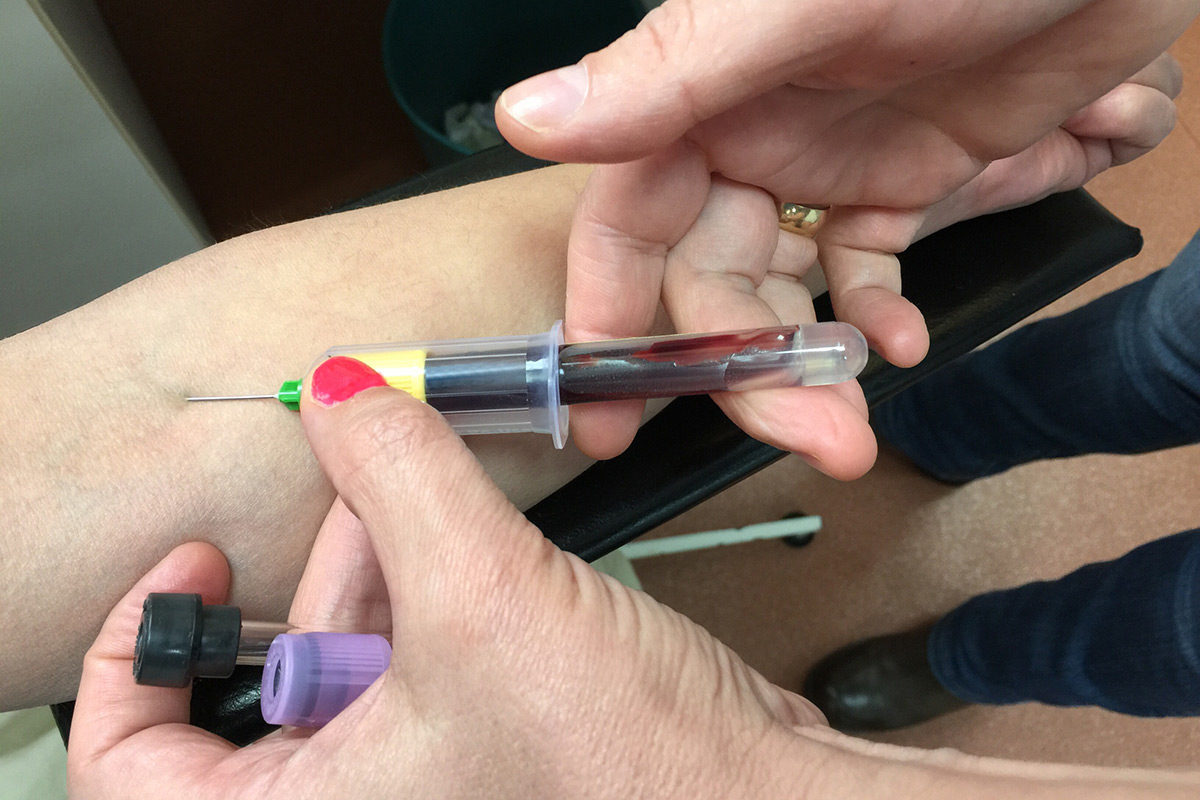New blood test to detect Alzheimer's disease
Tue 10 Apr 2018, 13:34:35

Scientists have developed a new blood test for Alzheimer's disease that can detect early indicators of the disease long before the first symptoms appear in patients.
The blood test would thus offer an opportunity to identify those at risk and may thereby open the door to new avenues in drug discovery, said the researchers from Ruhr University Bochum in Germany.
One of the hallmarks of Alzheimer's disease is the accumulation of amyloid-beta plaques in the patient's brain.The blood test uses a technology called immuno-infrared sensor to measure the distribution of pathological and healthy structures of amyloid-beta, according to a study published in the journal Molecular Cell.
The pathological
amyloid-beta structure is rich in a sticky, sheet-like folding pattern that makes it prone to aggregation, while the healthy structure is not.
amyloid-beta structure is rich in a sticky, sheet-like folding pattern that makes it prone to aggregation, while the healthy structure is not.
The two structures absorb infrared light at a different frequency, allowing the blood test to determine the ratio of healthy to pathological amyloid-beta in the sample.For the study, the researchers compared blood samples of 65 participants that were later in the follow-up studies diagnosed with Alzheimer's disease with 809 controls.
They found that the test reliably detected amyloid-beta alterations in the blood of participants with a mild cognitive impairment that also showed abnormal amyloid deposits in brain scans.
No Comments For This Post, Be first to write a Comment.
Most viewed from Health
AIMIM News
Latest Urdu News
Most Viewed
May 26, 2020
Do you think Canada-India relations will improve under New PM Mark Carney?
Latest Videos View All
Like Us
Home
About Us
Advertise With Us
All Polls
Epaper Archives
Privacy Policy
Contact Us
Download Etemaad App
© 2025 Etemaad Daily News, All Rights Reserved.






























